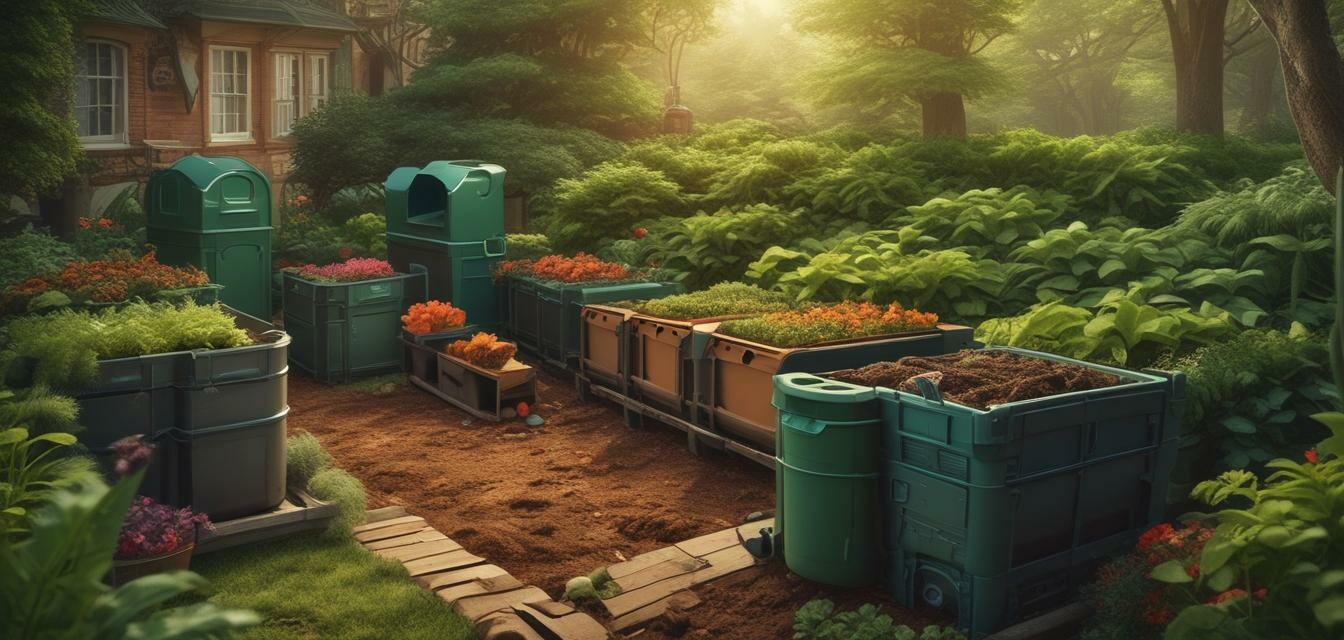
Innovations in Composting Technology for 2024
Key Takeaways
- Emerging technologies are transforming the composting process.
- Smart home composters allow for ease of use and efficiency.
- Worm composting is gaining popularity as a sustainable solution.
- Open air composters are becoming more efficient with innovative design.
- Bokashi composting offers unique benefits for urban environments.
The world of composting is evolving rapidly, with new technologies emerging to make the process more user-friendly and efficient. As we step into 2024, it's important to stay informed about these innovations that can enhance your composting experience, whether you are a seasoned composter or just starting out. In this article, we will explore the latest advancements in composting technologies, focusing on solutions that save time, reduce waste, and contribute to a more sustainable lifestyle.
Smart home composters
Smart home composters are becoming increasingly popular due to their ability to streamline the composting process. These devices can be app-controlled, allowing users to monitor and manage their composting efforts remotely. Here are some essential features of smart composters:
| Feature | Description |
|---|---|
| Connected App | Manage and monitor your composting progress from anywhere. |
| Automated Mixing | Automates the mixing process to enhance the composting speed. |
| Temperature Control | Maintains optimal temperatures for effective composting. |
| Alerts | Notifies you when it's time to add more materials or when the compost is ready. |
For those looking for greater efficiency, check out our smart composting products section for more options.
Compost tumblers
Compost tumblers have also seen a surge in innovative designs. The benefits of using a tumbler include faster compost processing and ease of use. Here's a comparison of traditional composting methods versus compost tumblers:
| Method | Efficiency | Maintenance |
|---|---|---|
| Traditional Composting | Variable | High - requires manual mixing and management |
| Compost Tumblers | High | Low - easy to turn and manage |
For more details, visit our compost tumblers page.
Worm composting bins
Worm composting, or vermicomposting, is another method gaining traction due to its efficiency and sustainability. Worm bins are not only compact but also require minimal upkeep. Some key advantages include:
- Reduced kitchen waste.
- High-quality compost output.
- Ideal for smaller spaces, making them perfect for urban dwellers.
Explore our range of worm composting bins to get started with this eco-friendly solution.
Open air composters
Open air compost systems are becoming more efficient due to new airflow designs and materials. These systems allow for a larger volume of compost while still maintaining the right balance of oxygen, moisture, and microbes necessary for effective composting.
| Feature | Benefit |
|---|---|
| Improved Airflow | Enhances decomposition rates and reduces odors. |
| Durable Materials | Longer lifespan and weather resistance. |
| Sturdier Design | Resists pests and wind damage. |
To learn more about the latest open air composting solutions, check our open air composters section.
Bokashi composting
Bokashi composting offers a unique twist on traditional methods by employing fermentation. This allows you to compost food scraps that are typically unsuitable for other methods. Key points related to Bokashi composting include:
- Minimal odor due to anaerobic fermentation.
- Ability to compost meat and dairy, which are often prohibited in traditional composting.
- Quick composting cycle, turning scraps into biodegradable material much faster.
For those interested in Bokashi composting, our Bokashi composting products showcase excellent solutions.
Conclusion
Innovations in composting technology are shaping a more sustainable future, making it easier for everyone to participate in waste reduction. By understanding these advancements, you can choose the best system suited for your needs and contribute to a greener planet. Whether it’s through smart composters, compost tumblers, worm bins, open air systems, or Bokashi composting, there are now more options than ever to reduce your carbon footprint and enrich your garden.
Pros
- Enhanced efficiency across various composting methods.
- Adaptability to urban settings with products suited for smaller spaces.
- Reduces overall waste and supports eco-friendly living.
Cons
- Initial investment can be significant for some advanced systems.
- Requires commitment and consistency for best results.